You can start by trying to remove the IS NOT NULL test, which is implicitly removed by COUNT on the field. It also looks like you would want to omit 25695 from match_keywords, otherwise 25695 (or other) would surely show up as the "best" match within your 11 row limit?
SELECT match_keywords.padid,
COUNT(match_keywords.word) AS matching_words
FROM keywords current_program_keywords
INNER JOIN keywords match_keywords
ON match_keywords.word = current_program_keywords.word
WHERE current_program_keywords.padid = 25695
GROUP BY match_keywords.padid
ORDER BY matching_words DESC
LIMIT 0, 11
Next, consider how you would do it as a person.
- You would to start with a padid (25695) and retrieve all the words for that padid
- From those list of words, go back into the table again and for each matching word,
get their padid's (assumed to have no duplicate on
padid + word)
- group the padid's together and count them
- order the counts and return the highest 11
With your list of 3 separate single-column indexes, the first two steps (both involve only 2 columns) will always have to jump from index back to data to get the other column. Covering indexes may help here - create two composite indexes to test
create index ix_keyword_pw on keyword(padid, word);
create index ix_keyword_wp on keyword(word, padid);
With these composite indexes in place, you can remove the single-column indexes on padid and word since they are covered by these two.
Note: You always have to temper SELECT performance against
- size of indexes (the more you create the more to store)
- insert/update performance (the more indexes, the longer it takes to commit since it has to update the data, then update all indexes)
